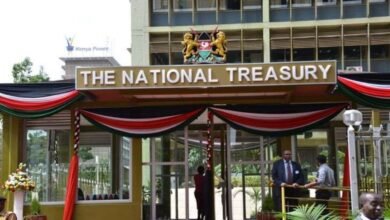
The Treasury Bills (T-Bills) remained undersubscribed when the overall subscription rate declined to 113.4%, from the 170.8% recorded the previous week.
The lower subscription is partly attributable to tightened liquidity in the money market with the average interbank rate increasing to 4.8% from 4.4% recorded the previous week.
Investor’s preference for the shorter 91-day paper persisted, with the paper receiving bids worth Ksh.12.7 billion against the offered Ksh4.0 billion, translating to a subscription rate of 316.8%, down from 406.3% recorded the previous week.
The subscription rates for the 364-day and 182-day papers declined to 76.9% and 68.5% from 89.5% and 158.0%, respectively, recorded the previous week. The yields on the government papers were on an upward trajectory, with the yields on the 364-day, 182-day and 91-day papers increasing by 3.8 bps, 1.2 bps and 4.6 bps to 10.2%, 9.7% and 9.2%, respectively.
In the Primary Bond Market, government re-opened two bonds in the primary market, FXD1/2008/20 and FXD1/2022/25, with effective tenors of 5.6 years and 24.9 years, respectively, in a bid to raise Ksh.40.0 billion for budgetary support.
Further, the government is seeking to raise Ksh.87.8 billion in a switch auction of three Treasury Bills issues Nos. 2494/91, 2454/182 and 2380/360 and T-Bond issue No. FXD1/2021/2, with an infrastructure bond, IFB1/2022/6.
Year to Year inflation rate for month of November is expected to fall within the range of 9.7 percent, with Cytonn analysis hinging the outcome on the increased food and fuel prices.
“We are projecting the y/y inflation rate for November 2022 to fall within the range of 9.7%-10.1%, mainly driven by high fuel and increasing food prices.”
This even as the Monetary Policy Committee (MPC) in its meeting on November 23r, 2022 reviewed the benchmark lending rate by 50 basis points (bps) to a record 8.75 percent.





